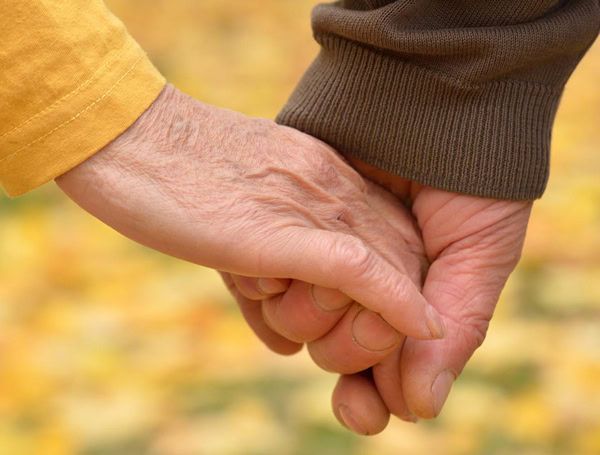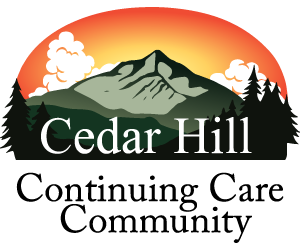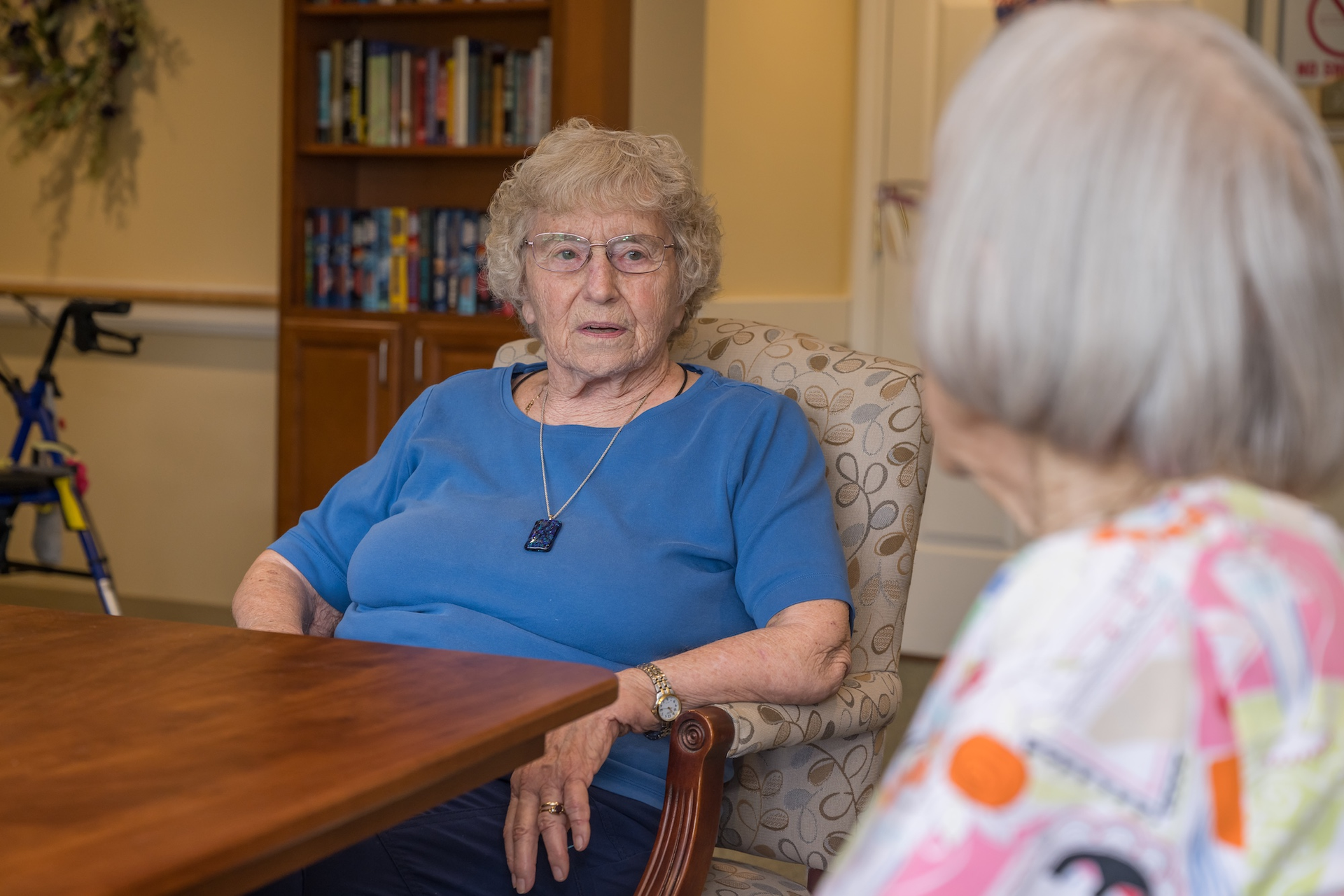Registered Nurse
Cedar Hill Continuing Care Community
Job Description
Position: Registered Nurse
Department: Nursing Services
Reports to: Director of Nursing
Reporting to this position: Licensed Practical or Vocational Nurse, Certified Nursing Assistant, Medication Technician/Aide, Restorative Aide
Job Classification: Department Staff
Position Purpose: May provide direct nursing care to the residents and supervise the day-to-day nursing activities performed by the licensed practical/ vocational nurse and certified nursing assistants in accordance with current federal, state, and local regulations and guidelines and established facility policies and procedures.
Required Qualifications
- Prior experience in long-term care is preferred but not required.
- A Nursing degree from an accredited college or university.
- Current license as a Registered Nurse (RN) in practicing state.
- Current CPR certification.
Major Duties and Responsibilities
Directs the daily activities of the licensed practical/vocational nurse and certified nursing assistants in accordance with current federal, state and local regulations and guidelines and established facility policies and procedures.
Follows the nursing model to promote holistic care for the residents.
Ensures that policies and procedures are complied with by nursing personnel assigned.
Participates in the admission, discharge and transfers of residents as required.
Assesses for changes in residents’ status, notifying the physician and resident’s family or representative and documenting accordingly.
Transcribes physician orders to medical records and carries out orders as written.
Prepares and administers medications as per physicians’ orders and observes for adverse effects as indicated.
Performs wound treatments as per physicians’ orders, observes for changes, and documents accordingly as indicated.
Schedules follow-up appointments for residents and transportation needs as indicated.
Provides nursing leadership to nursing personnel assigned to the unit.
Provides direct care skills such as colostomy changes, tube feedings, wound care, suctioning, IV administration, etc. in accordance with current policies and procedures, as assigned.
Performs rounds to ensure resident needs are being met and personnel are performing their assigned duties.
Collaborates with other members of the interdisciplinary team as needed to ensure residents’ needs are holistically met.
Participates in management team meetings as indicated to discuss census changes, resident changes in status or care need, or complaints or concerns.
May assist in evaluating work performance of nursing personnel and implements discipline according to operational policies and as directed.
Informs appropriate departments of concerns or complaints and files grievances as necessary.
Reports any incidents or unusual occurrences to the unit manager, assistant director or nursing or director of nursing and participates in the investigative process as needed.
Participates in end of life care as required.
Ensures that there is adequate stock of medications, supplies, equipment and notifies appropriate personnel of needs.
Initiates, reviews and updates care plans as required.
Promotes teamwork, mutual respect, and effective communication.
Participates in the survey process when inspection surveys arise.
May participate in QAPI activities as needed or assigned.
Ensures that infection control principles are followed and helps correct deficiencies in practice as noted.
Other duties as assigned.
Additional Tasks
- Treats all residents with dignity and respect. Promotes and protects all residents’ rights.
- Establishes a culture of compliance by adhering to all facility policies and procedures. Complies with standards of business conduct, and state/federal regulations and guidelines.
- Follows appropriate safety and hygiene measures at all times to protect residents and themselves.
- Maintains confidentiality of protected health information, including verbal, written, and electronic communications.
- Reports noncompliance with policies, procedures, regulations, or breaches in confidentiality to appropriate personnel. Reports any retaliation or discrimination to HR or compliance officer.
- Reports any allegations of abuse, neglect, misappropriation of property, exploitation, or mistreatment of residents to supervisor and/or administrator. Protects residents from abuse, and cooperates with all investigations.
- Reports any occupational exposures to blood, body fluids, infectious materials, and/or hazardous chemicals in accordance with facility policy.
- Participates in all life safety and emergency drills and trainings. Fulfills responsibilities as assigned during implementation or activation of the facility’s emergency plan.
- Reports work-related injuries and illnesses immediately to supervisor.
- Follows established infection control policies and procedures.
- As a condition of employment, completes all assigned training and skills competency.
Personal Skills and Traits Desired/ Physical Requirements/Working Conditions
- Ability to read, write, speak and understand the English language.
- Must be a supportive team member, contribute to and be an example of team work.
- Ability to make independent decisions when circumstances warrant such action.
- Ability to deal tactfully with personnel, residents, family members, visitors, government agencies/personnel and the general public.
- Must have patience, tact, and willingness to deal with difficult residents, family and staff.
- Must be able to relay information concerning a resident’s condition.
- Must not pose a threat to the health and safety of other individuals in the workplace.
- Must be able to move intermittently throughout the workday.
- Meets general health requirements according to facility policy, including medical and physical exams and checking immunity status to various infectious diseases.
- Ability to assist in evacuation of residents during emergency situations.
- Ability to bend, stoop, kneel, crouch, perform overhead lifting and perform other common physical movements as needed for the position.
- May be subject to falls, burns from equipment, and/or odors throughout the day; encounter reactions from dust, tobacco smoke, disinfectants, and other air contaminants.
- Subject to exposure to infectious waste, diseases and/or conditions which include AIDS, Coronavirus, Hepatitis B, and Tuberculosis.
- May be subject to hostile or emotional residents, family members, visitors or personnel.
- Must possess leadership, supervisory ability and willingness to work harmoniously with and supervise other personnel.
- Must be able to follow oral and written instructions.
- Communicates with medical and nursing staff, and other departments.
- Subject to call-back during emergency conditions.
- Works at nursing station and throughout the facility.
- Subject to frequent interruptions.
- May work beyond normal working hours and on weekends, holidays when necessary.







